Importing a Fish Feed Machine from China
If you’re looking to buy a floating fish feed making machine, you’ve likely noticed one thing: a huge number of them are made in China. As the world’s factory, China offers an unmatched variety of machines at highly competitive prices.
But buying from a supplier halfway around the world can feel risky. How do you find a good, honest company? How can you be sure of the quality? And how do you handle complex topics like payment and shipping?
This guide will demystify the entire process. We will give you a clear, step-by-step plan to help you find, vet, and safely purchase the right fish feed machine for your needs.
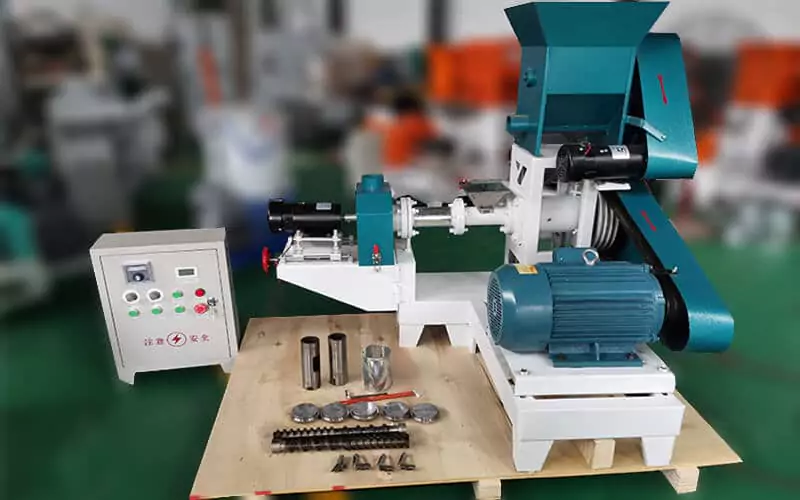
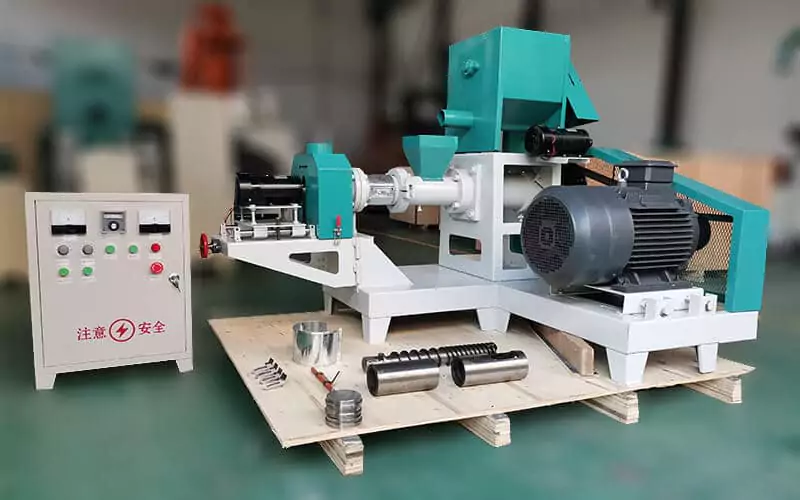
Why Source a Fish Feed Making Machine from China? The Pros & Cons
Buying from China can be a brilliant move, but it’s important to go in with your eyes open. Here is a balanced look at the reality of sourcing from this market.
The Advantages (The “Pros”)
Competitive Pricing:
The biggest draw is the cost. By buying directly from the source, you can often acquire a high-capacity machine for a fraction of what it would cost in your home country.
Wide Variety of Models:
The sheer number of manufacturers means there is a machine for every possible need—from small, simple pellet mills for a backyard pond to massive, fully automated extrusion lines for commercial aquaculture.
Access to Full Production Lines:
Chinese suppliers make it easy to source not just a single floating fish feed machine, but an entire fish feed production line, including the grinder, mixer, extruder, dryer, and packing machine, all from one place.
The Potential Risks (The “Cons”)
Quality Control Concerns:
The quality can range from excellent to very poor. Without being there in person, it can be hard to verify the build quality and materials used.
Communication & Language Barriers:
While many sales representatives speak English, misunderstandings about technical details can occur, leading to problems later.
Complex Shipping & Import Rules:
Navigating international logistics, customs clearance, and import taxes can be a difficult and time-consuming process for a first-time buyer.
Understanding the Main Types of China Fish Feed Machines Available
Before you can choose a supplier, you need to know exactly what type of machine you need.
Floating Fish Feed Extruders
These are the most popular type of floating fish feed making machine for many fish species. An extruder uses high heat and pressure to cook the feed mixture. This process causes the finished pellets to expand and become buoyant, so they float on the water’s surface. This is perfect for surface-feeding fish like Tilapia and Trout, as it allows you to monitor feeding and reduce waste.
Sinking Fish Feed Pellet Mills
These machines use pressure to form dense pellets that sink to the bottom. They do not cook the feed in the same way an extruder does. This is the ideal choice for bottom-feeding species like shrimp and many types of catfish.
Full Production Lines vs. Standalone Machines
You have two choices. You can buy a single, standalone machine (like just the extruder). Or, you can buy a complete, integrated production line that automates the entire process from grinding the raw materials to bagging the finished pellets.
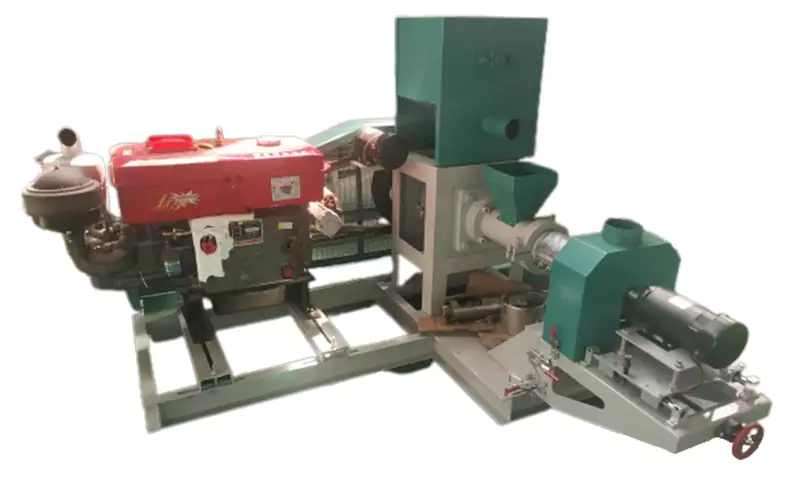
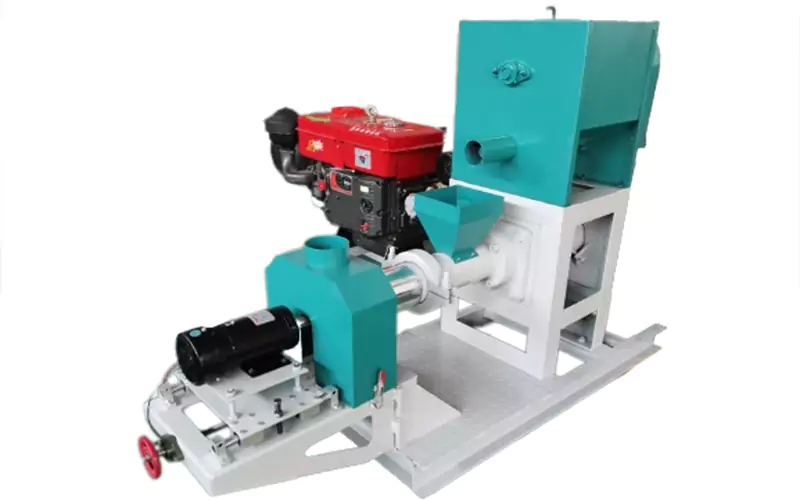
Key Features to Check Before You Buy
Not all fish feed machines in China are created equal. Use this technical checklist to judge the quality of a machine before you even discuss the price.
Motor & Electrical Components:
Ask what brand of motor is used. A machine with a reliable, well-known motor brand (like Siemens) is a sign of quality. Most importantly, confirm that the machine’s voltage and frequency (e.g., 220V/50Hz, 380V/60Hz) match the electrical standards in your country.
Die & Screw Materials:
These are the high-wear parts that are critical to the machine’s function. They must be made from a high-quality, hardened alloy steel. Do not accept standard iron, as it will wear out very quickly.
Production Capacity (kg/hr):
Be skeptical of advertised capacity numbers. Ask the supplier for video proof of the machine running and producing at the claimed capacity. A trustworthy supplier will be happy to provide this.
Safety & Quality Certifications:
Look for official certifications. A CE mark indicates the machine meets European safety standards. An ISO 9001 certificate shows the manufacturer has a proven quality management system.
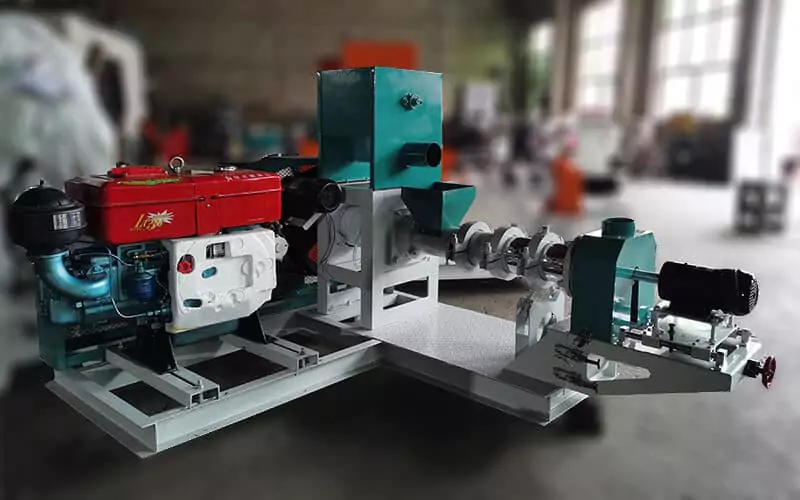
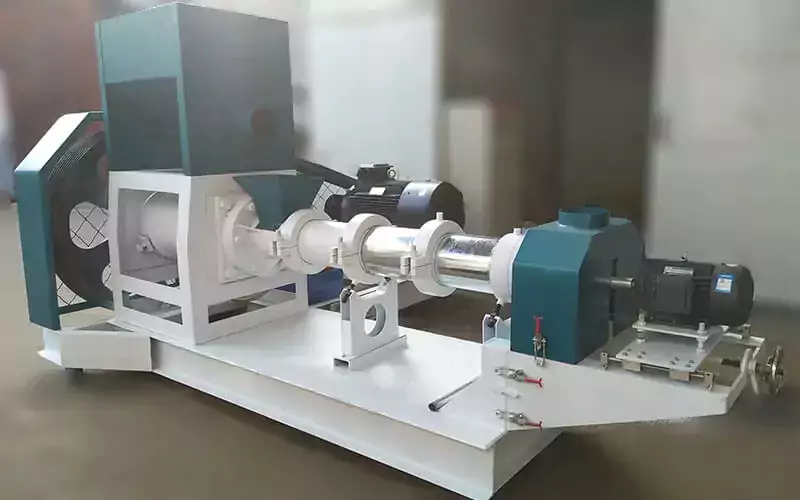
How to Find and Vet Reliable Chinese Suppliers: A 5-Step Safety Checklist
This is the most important part of the process to find a reliable floating fish feed making machine in China. Following these steps will help you avoid scams and find a great long-term partner.
Start on Major B2B Platforms
The best places to start your search are on Alibaba and Made-in-China.com. These global platforms host thousands of machinery suppliers. Look for suppliers who have “Verified,” “Audited,” or “Gold Supplier” badges, as this means the platform has confirmed their business is legitimate.
Verify Their Business Credentials
Once you find a potential supplier, do your homework. Ask for a copy of their business license and any quality certificates they have (like ISO 9001). A professional company will provide these documents without hesitation.
Schedule a Live Video Call & Factory Tour
This is a crucial step. Ask the sales representative for a live video call. Ask them to walk you through their factory or workshop. This allows you to see their operation, their machines, and confirm you are speaking to a real manufacturer, not just a reseller in an office.
Ask for Customer References
A reputable manufacturer who has been in business for years should be able to provide you with references or case studies from other customers, ideally from your region or a country with a similar market.
Clarify After-Sales Support & Spare Parts
Ask direct questions before you buy: “What is the warranty period?” “If a part breaks, how quickly can you ship a replacement to my country?” and “Do you provide technical support in English?” The answers to these questions are critical.
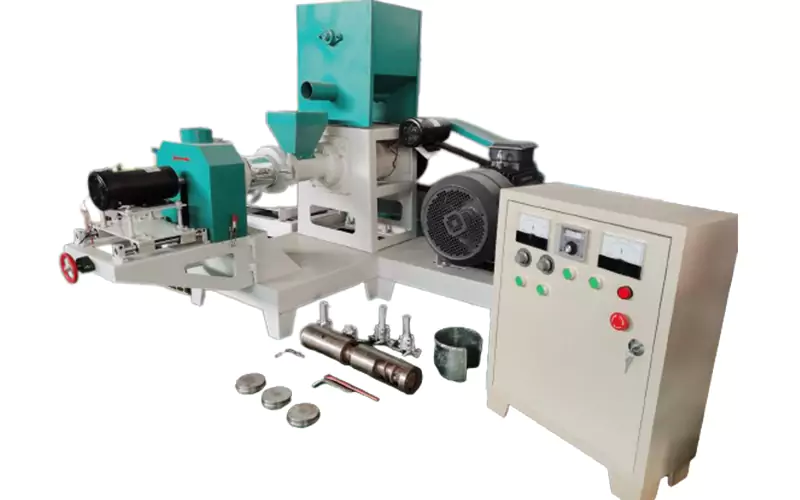
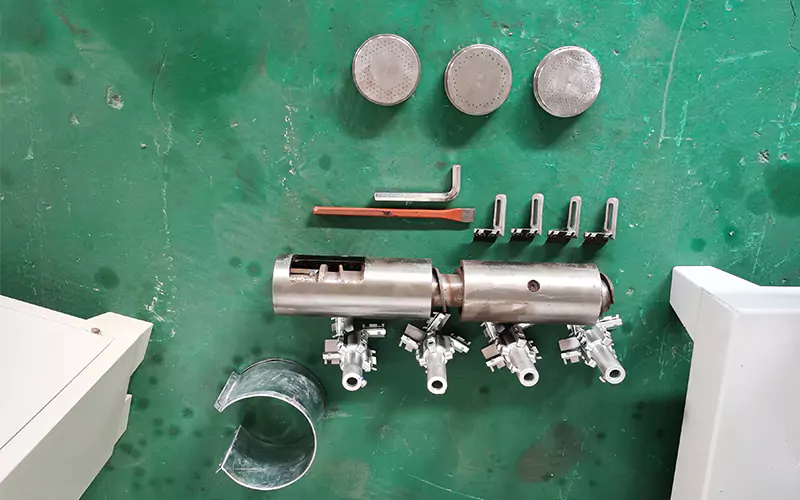
Navigating Payment, Production, & Shipping
Once you’ve chosen a supplier, you need to handle the logistics.
Secure Payment Methods
Never send 100% of the payment upfront via a direct bank transfer (T/T). Use a safer method that offers you protection. Alibaba Trade Assurance is an excellent option, as it holds your payment until you confirm you have received the machine as described. For very large orders, a Letter of Credit (L/C) through your bank is the most secure method.
Production Time & Quality Control
Get a clear production timeline in your written contract. For a significant investment, consider hiring a third-party inspection service in China. They can visit the factory and inspect your machine before it is shipped to ensure it meets the agreed-upon specifications.
Understanding Shipping Documents & Terms
To get your floating fish feed making machine through your country’s customs, you will need several key documents from the supplier. These typically include the Bill of Lading (the transport contract), the Commercial Invoice (the bill), and the Packing List (details of the shipment).
FAQ
1. How much are the import taxes and customs duties?
This varies greatly depending on your country’s laws and trade agreements with China. The best way to get an accurate number is to contact a professional customs broker in your country. Give them the machine’s description and value, and they can tell you the exact taxes you will need to pay.
2. What happens if the machine arrives damaged?
This is why shipping insurance is essential. Before you place your order, confirm with your supplier that the shipment will be fully insured against damage. If the floating fish feed making machine does arrive with damage, document it with photos before you sign for the delivery, and contact both the shipping company and your supplier immediately.
3. Can I get after-sales support in my own language?
This is a key question to ask a supplier before you buy. Larger, more experienced exporters who deal with international clients regularly will almost always have English-speaking sales and technical support staff who can help you via email, chat, or video call.
